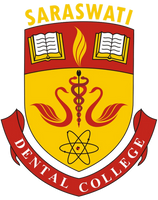
Orofacial pain and headaches are common conditions that significantly impact quality of life. These conditions encompass various disorders, including temporomandibular joint (TMJ) dysfunction, migraines, tension headaches, and neuropathic pain. Conventional treatments often involve medications, physical therapy, and lifestyle modifications. However, acupuncture therapy has gained recognition as an effective complementary treatment for managing these conditions due to its analgesic, anti-inflammatory, and neuromodulatory effects.
Mechanism of Acupuncture in Pain Management
Acupuncture is a traditional Chinese medicine (TCM) practice that involves inserting fine needles into specific points on the body to restore energy balance, known as Qi. Modern scientific research suggests that acupuncture works by stimulating nerve endings, releasing neurotransmitters such as endorphins and serotonin, and modulating pain pathways in the central nervous system.
1. Endorphin Release and Pain Reduction
Acupuncture triggers the release of endogenous opioids, including endorphins and enkephalins, which help alleviate pain by binding to opioid receptors in the brain and spinal cord. This natural analgesic effect makes acupuncture a viable option for managing chronic orofacial pain and headaches.
2. Reduction of Muscle Tension and Inflammation
Muscle tension and inflammation often contribute to orofacial pain and headaches. Acupuncture has been shown to relax muscles, improve blood circulation, and reduce local inflammation, which can relieve tension-type headaches and TMJ-related pain.
3. Modulation of the Nervous System
Acupuncture affects the autonomic nervous system by promoting parasympathetic activity, which can reduce stress-related tension and decrease pain sensitivity. It also influences pain perception by inhibiting hyperactive nerve signals involved in chronic pain conditions.
Acupuncture for Specific Orofacial Pain and Headache Conditions
1. Temporomandibular Joint (TMJ) Dysfunction
TMJ disorders often present with jaw pain, clicking sounds, and difficulty in chewing. Acupuncture has been shown to reduce TMJ pain by improving joint mobility, reducing muscle tension, and enhancing local blood flow. Studies indicate that patients receiving acupuncture experience significant pain relief and improved jaw function compared to those receiving conventional treatments alone.
2. Migraines and Tension Headaches
Migraine headaches are often linked to vascular changes and neurotransmitter imbalances. Acupuncture can help regulate these physiological factors, leading to fewer migraine episodes and reduced severity. Similarly, for tension headaches, which are associated with muscle tightness and stress, acupuncture has been found to reduce frequency and intensity by promoting relaxation and improving circulation.
3. Trigeminal Neuralgia
Trigeminal neuralgia is a severe facial pain disorder caused by nerve irritation. Acupuncture may provide relief by modulating nerve activity and reducing hypersensitivity in affected areas. While not a cure, it offers a complementary approach that can enhance the effects of conventional treatments.
Efficacy and Considerations
Research supports the efficacy of acupuncture in managing orofacial pain and headaches, with many patients reporting significant symptom relief. However, individual responses vary, and the success of treatment depends on factors such as the frequency of sessions, the expertise of the practitioner, and the underlying cause of pain.
Acupuncture is generally safe when performed by a trained professional. Mild side effects, such as slight bruising or temporary soreness at needle sites, may occur but are rare. It is important for individuals considering acupuncture to consult with healthcare providers to determine if it is a suitable option for their condition.
Conclusion
Acupuncture therapy presents a promising, non-invasive, and drug-free approach to managing orofacial pain and headaches. By influencing pain pathways, reducing inflammation, and promoting muscle relaxation, acupuncture offers effective relief for conditions such as TMJ dysfunction, migraines, and tension headaches. Further research and standardized protocols will help optimize its use in clinical practice.


No Any Replies to “Acupuncture Therapy in the Management of Orofacial Pain and Headaches”
Leave a Reply